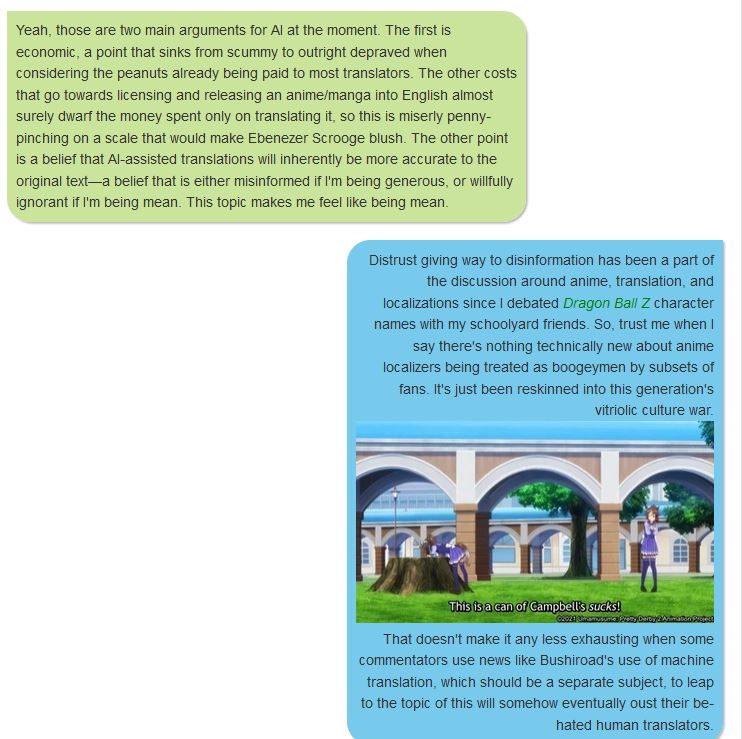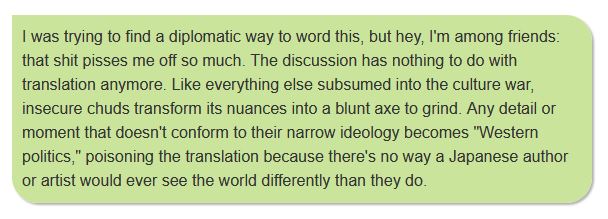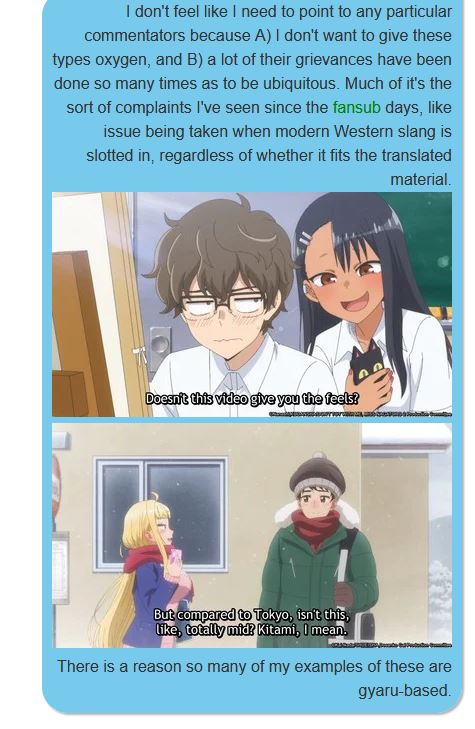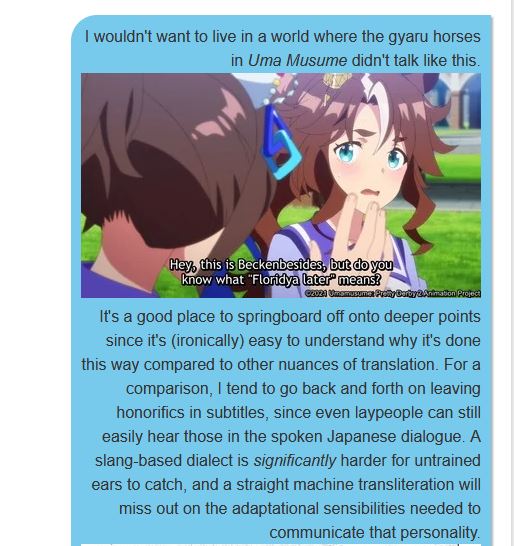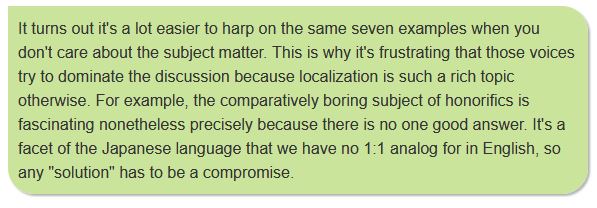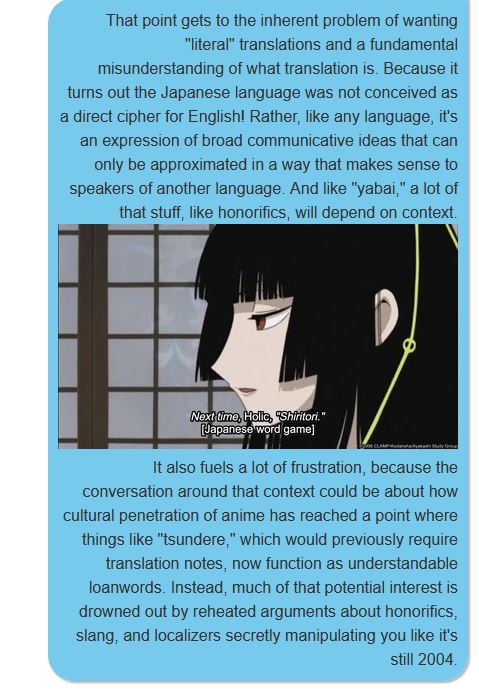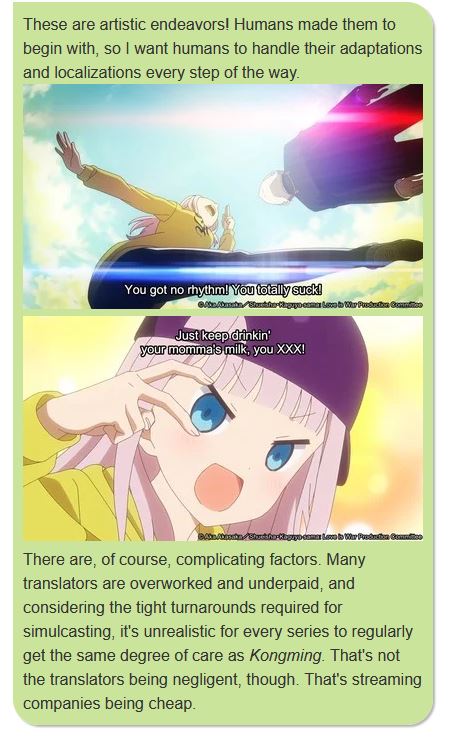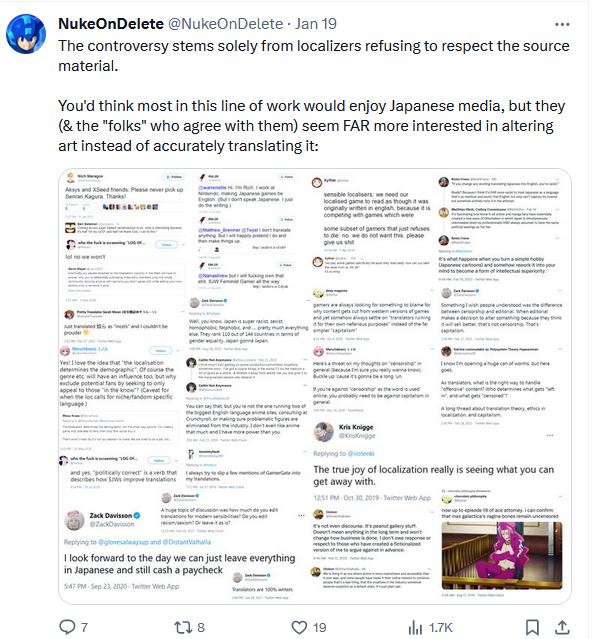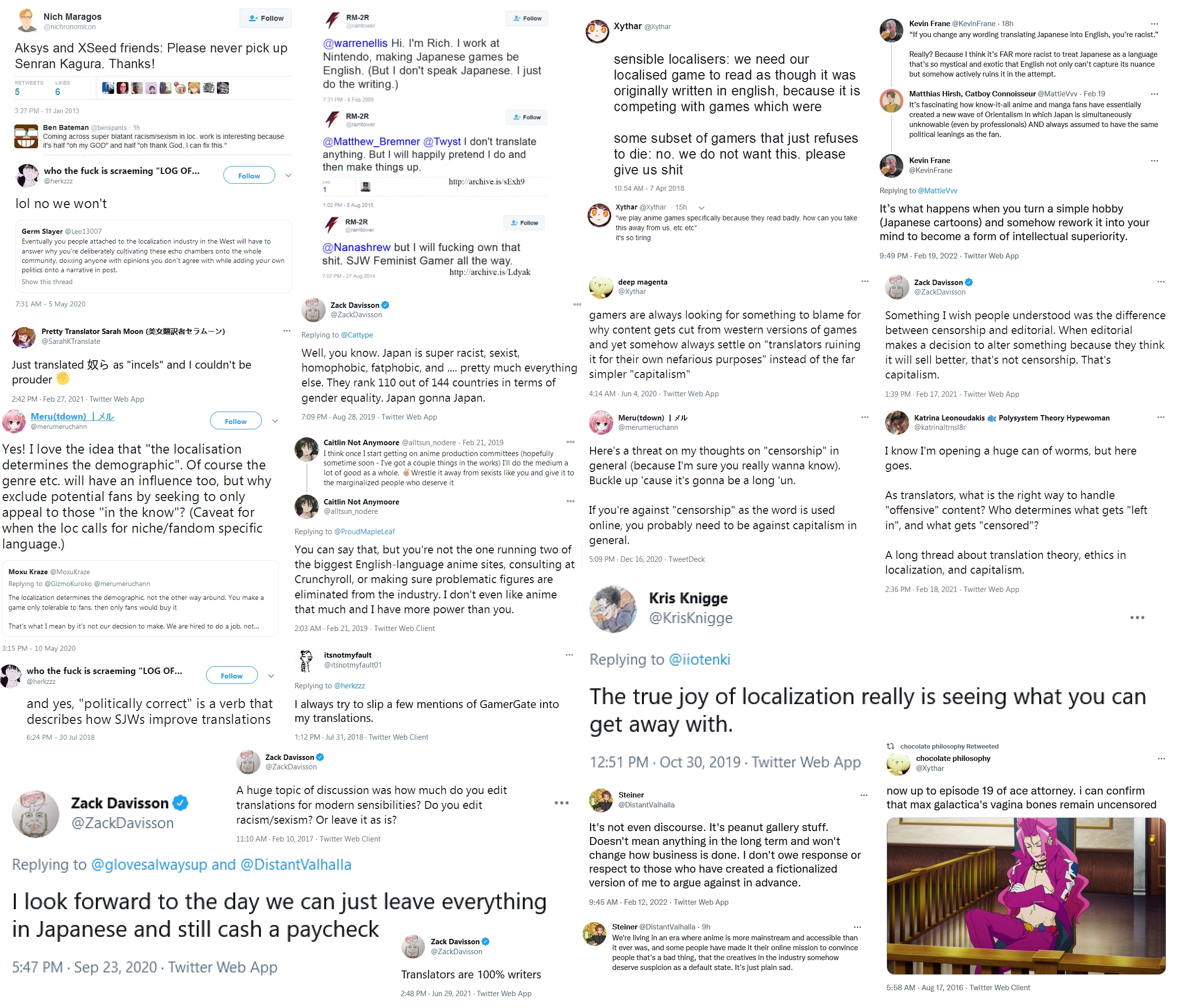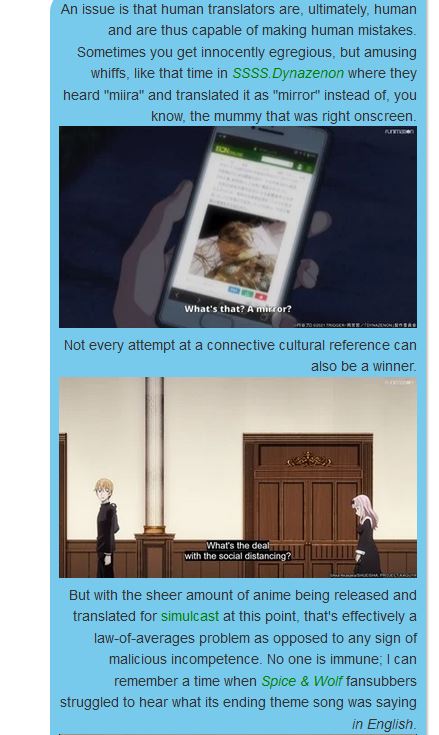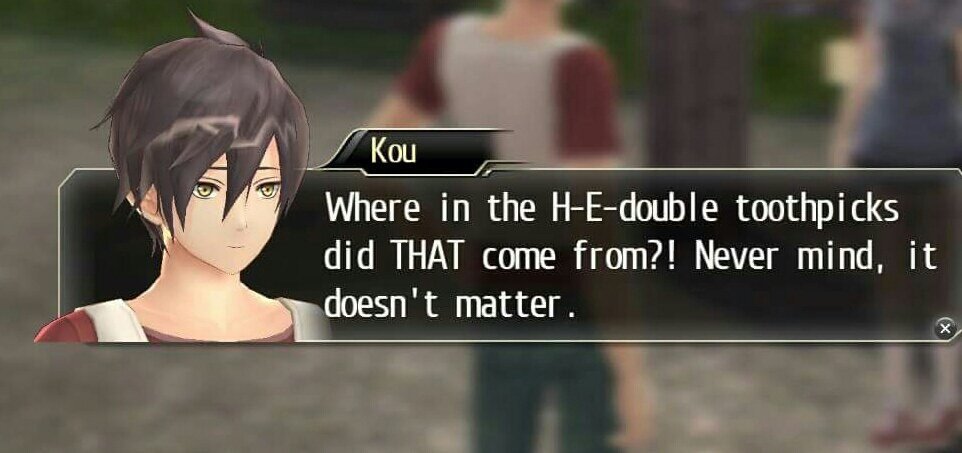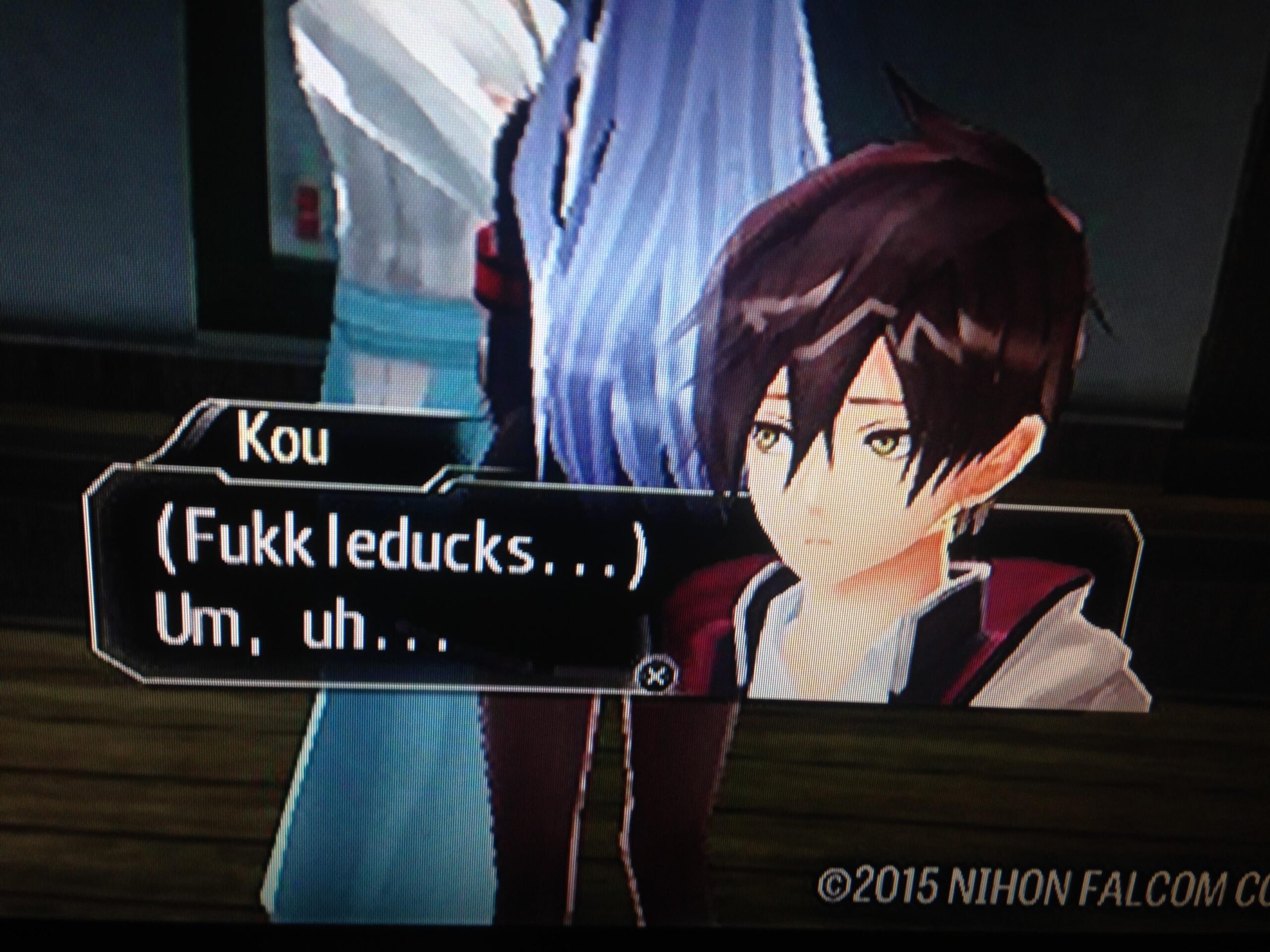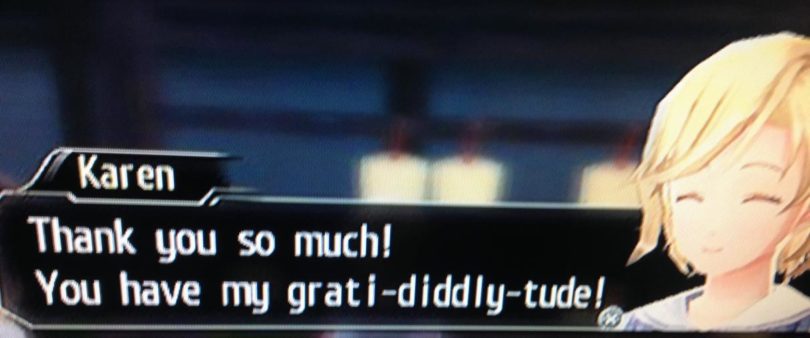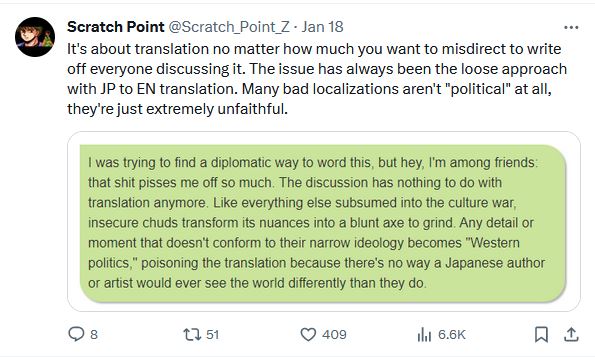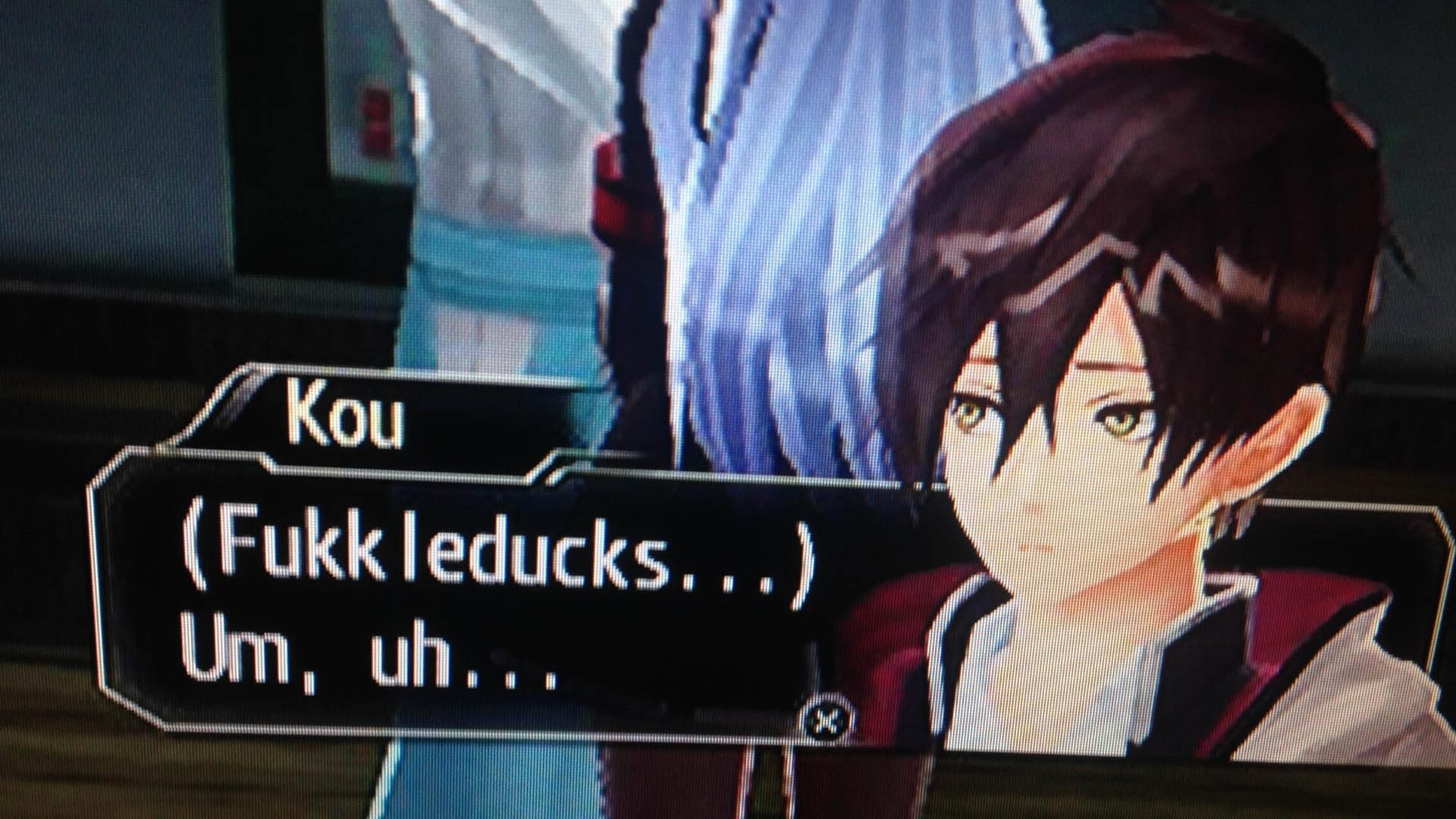
Western anime website Anime News Network has posted a discussion on the “localization controversy” that gained traction recently, and it wasn’t well-received due to its dishonesty.
For those unfamiliar, localizers have been inserting politics into video games and anime and/or mistranslating them for over a decade, with Niche Gamer having a large article revealing a bunch of them.
The Anime News Network article attempts to discuss the matter, but one comment rather perfectly described the whole thing:
The article is dishonest as it boils down the topic by calling anyone criticizing translations/localizations “insecure chuds”, without actually addressing the more genuine criticism.
The discussion has several individuals addressing the matter, and they started by saying one of the main arguments for AI is the fact that it will possibly be more “accurate to the original text”:
The article does accurately note that AI isn’t yet at a dependable level and is more at the level of Google translate, with it sometimes producing garbled results and missing important context.
However, those speaking in the article decided to insult the opposing side by saying they’re merely trying to “earn points in the culture war”, when this is exactly what localizers are doing by inserting political references where there were none in the original Japanese text.
Just like those who push “modern day feminism” or “gender ideology”, the people in the article merely projected themselves onto those criticizing dishonest localizations:
Then the article moves on to once again berate critics, telling them they don’t “actually care about the subject matter” due to “bringing up the same examples”.
It even goes on to suggest critics of bad localizations “don’t understand what translation actually is,” seen below:
The reason why people keep “bringing up the same examples” (even though they bring up ALL examples as noted in this Niche Gamer article chronicling 8+ years worth of mistranslations) is because localizers never give an actual answer to them:
Any normal person cannot comprehend how you go from “everyone was always saying something to me” to “those pesky patriarchal societal demands”, and act as if that’s not blatant manipulation of the script to push fabricated western ideological nonsense that wasn’t in the original Japanese script.
Similarly, the article doesn’t bother to provide an answer either, merely excuses, such as recycling the same argument of localizers “not being paid enough”, as if that is meant to be justification for inserting nonsensical politics and memes into the script:
As noted by another commenter, it doesn’t help that translators act like moral arbiters and purposely change scripts to fit “western sensibilities”, instead of just preserving the creator’s original intent:
The “sheer amount of anime” being released was also blamed, as the article said the poor quality is often a “law-of-averages problem as opposed to any sign of malicious incompetence”, which is absurd given the provided example:
The article wants to convince people that inserting a reference to “social distancing” into the script was because the localizers were “too busy”, and it was “not at all” their attempt to make the script their own, as opposed to simply translating the Japanese, which is their job.
Most of those in favor of AI translations are tired of official English localizations due to the insertion of politics/memes where there were none, or from just horrible mistranslations in general.
In many cases those same localizers then mock anyone who dares criticize their questionable work. Here are some notable examples of criticized localizations:
The English localization of Hajimete no Gal was tampered with to include internet lingo while insulting light novel readers, and as can be expected, this isn’t what was said in the original Japanese version:
The English dub of Demi-chan wa Kataritai inserted a line about “SJWs”:
Tokyo Xanadu is notorious for its awful localization:
The localization team behind Trails of Cold Steel III previously admitted to censoring dialogue on a livestream:
Sentai Filmworks changed a female character’s remark in the English dub of To Love-Ru to instead accuse a male character of being “misogynistic”:
Funimation’s English localization of Kono yo no Hate de Koi wo Utau Shoujo YU-NO changed the dialogue to instead have a female character calling the protagonist a misogynist:
Here’s the original Japanese version of the scene, which doesn’t include any words implying “misogyny”, nor of the male calling the female “sweet cheeks”:
Anime News Network is no stranger when it comes to being part of “that” contingent, as their reviewers often complain about “problematic” elements in anime.
Those critics will lambast things like the fanservice with underage characters in Miss Kobayashi’s Dragon Maid, or the fake rape accusation in The Rising of the Shield Hero, or the “body shaming” in How Heavy Are the Dumbbells You Lift?.
The site also began preemptively censoring discussion before the airing of rape revenge anime Redo of Healer, called anime Darling in the Franxx “right-wing propaganda“, banned the use of the word “trap”, and the website’s CEO even called critics “alt-right dorks”.
Here’s a couple more comments addressing ANN’s article:

